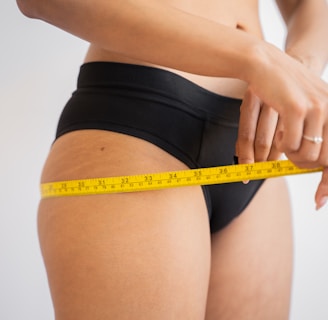Measuring Body Fat Calculator | Body Fat Percentage Chart | Body Fat Scale
Calculate your body fat percentage with our accurate tool. Learn what it means, why it matters & how to improve your results for better health!


Understanding Body Fat Percentage: A Comprehensive Guide with Calculator
Body fat percentage is one of the most accurate ways to assess your overall health and fitness. Unlike body weight or BMI (Body Mass Index), which don’t differentiate between fat and muscle, body fat percentage specifically measures how much of your weight comes from fat.
This article will explain:
✔ Key terms related to body fat measurement
✔ Why body fat percentage matters
✔ How to use the built-in calculator
✔ How to interpret your results
By the end, you’ll have a clear understanding of your body composition and how to track it effectively.
Key Terms Defined
1. Body Fat Percentage
This is the proportion of fat in your body compared to your total weight. For example, if you weigh 70 kg and have 14 kg of fat, your body fat percentage is 20%.
2. Lean Body Mass (LBM)
This includes muscles, bones, organs, and water—everything in your body that isn’t fat. A higher LBM usually indicates better metabolic health.
3. Fat Mass
The actual weight of fat in your body. While some fat is essential for survival, excess fat can lead to health risks.
4. Essential Fat vs. Storage Fat
Essential fat is necessary for bodily functions (hormone regulation, vitamin absorption).
Men: 2-5%
Women: 10-13% (higher due to reproductive needs)
Storage fat is excess fat that accumulates, which can be harmful in high amounts.
5. BMI (Body Mass Index)
A ratio of weight to height (kg/m²). While useful for population studies, it doesn’t account for muscle vs. fat, making it less precise than body fat percentage.
Why Body Fat Percentage Matters
Health Risks of High Body Fat
Increased risk of heart disease, diabetes, and hypertension
Lower metabolic efficiency
Higher inflammation levels
Health Risks of Very Low Body Fat
Hormonal imbalances (especially in women)
Weakened immune system
Loss of muscle mass
Fitness & Athletic Performance
Athletes often aim for lower body fat to maximize strength-to-weight ratio.
Bodybuilders cut fat before competitions to highlight muscle definition.
Average individuals should aim for a healthy range (see classification table below).
How to Use the Body Fat Calculator
This calculator provides three methods to estimate body fat percentage:
1. Skinfold Caliper Method
Measures fat thickness at different body sites (chest, abdomen, thigh, etc.).
Requires calipers but is highly accurate when done correctly.
2. US Navy Method
Uses neck, waist, and (for women) hip circumferences.
Convenient and reasonably accurate without specialized tools.
3. BMI-Based Estimation
Uses height and weight to estimate body fat.
Least precise but useful if no other measurements are available.
Step-by-Step Guide
Select your gender (affects calculation formulas).
Enter age, height, and weight (in preferred units).
Choose a measurement method:
Skinfold: Enter measurements in millimeters (mm).
Navy Method: Input neck, waist, and (for women) hip circumferences.
BMI-Based: Only height and weight needed.
Click "Calculate Body Fat" to see your results.
Understanding Your Results
After calculation, you’ll see:
1. Body Fat Percentage
Compared against standard ranges:
CategoryMenWomenEssential Fat2-5%10-13%Athletes6-13%14-20%Fitness14-17%21-24%Average18-24%25-31%Obese25%+32%+
2. Fat Mass & Lean Mass Breakdown
Fat Mass: How many pounds/kilos of fat you carry.
Lean Mass: Weight from muscles, bones, and organs.
3. Health Classification
Tells you whether you’re in a healthy range or need adjustments.
How the Calculator Works (Behind the Scenes)
Skinfold Method Formula
Men: (0.1051 × sum of skinfolds) + 2.585
Women: (0.1548 × sum of skinfolds) + 3.580
Navy Method Formula
Men:
Copy
86.010 × log10(waist - neck) - 70.041 × log10(height) + 36.76
Women:
Copy
163.205 × log10(waist + hips - neck) - 97.684 × log10(height) - 78.387
BMI-Based Estimation
Men: (1.20 × BMI) + (0.23 × age) - 16.2
Women: (1.20 × BMI) + (0.23 × age) - 5.4
Final Thoughts
Tracking body fat percentage is far more useful than tracking weight alone. Whether you’re an athlete, fitness enthusiast, or just health-conscious, this calculator helps you:
✅ Measure progress accurately (not just weight loss, but fat loss).
✅ Set realistic fitness goals.
✅ Avoid extreme dieting by understanding essential fat needs.
Try the calculator now and see where you stand!
Frequently Asked Questions (FAQs)
Q: Which method is the most accurate?
A: Skinfold calipers (when done correctly) and DEXA scans are the most precise. The Navy method is a good alternative if you don’t have calipers.
Q: How often should I check my body fat percentage?
A: Every 4-8 weeks (fat loss/gain is gradual).
Q: Can I be "skinny fat"?
A: Yes! You might have a normal BMI but high body fat if you lack muscle.
Q: Why do women have higher essential fat?
A: Due to reproductive health needs (hormones, pregnancy).
Now that you understand body fat percentage, use the calculator above to check yours and take control of your health! 🚀
Read More:
